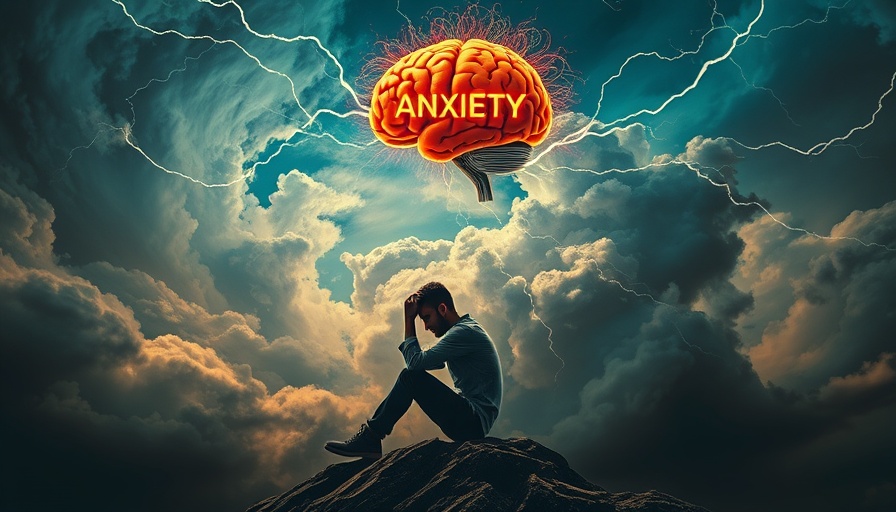
Understanding Anxiety: The Brain's Alarm System
Anxiety is a common experience for many families, especially in today's fast-paced world. When a person feels anxious, it's not just in their head; it's a battle occurring deep within the brain. At the heart of this response is the amygdala, often referred to as the brain's alarm system. Whenever it perceives danger—whether it's real or imagined—it triggers a surge of adrenaline throughout the body. This response can prompt physical reactions: a racing heart, sweaty palms, and an instinct to either fight or flee.
In 'Unlocking Anxiety: What's Happening in Your Brain? #shorts', the discussion dives into the brain's response to anxiety, exploring key insights that sparked deeper analysis on our end.
The Tug-of-War Between Emotion and Rationality
However, what happens when the amygdala misfires, leading to chronic anxiety without a legitimate threat? This constant activation can become exhausting. In these moments, the prefrontal cortex, which is responsible for rational thinking, attempts to regain control. This tug-of-war between emotional responses and rational thoughts can leave individuals feeling drained and overwhelmed, underscoring how anxiety is not merely a mental state, but also a significant factor affecting physical health.
How Anxiety Impacts Physical Health
Chronic anxiety can have serious consequences beyond mental strain. It can manifest in physical health issues, including chronic headaches, digestive problems, and heart complications. These connections reveal the importance of addressing mental wellness as part of a holistic approach to health. Families must understand that when one member struggles with anxiety, it can have ripple effects throughout the household.
Rewiring Anxious Pathways: A Hopeful Perspective
Despite the overwhelming nature of anxiety, there is hope. Techniques such as mindfulness and cognitive therapy can help rewire those anxious pathways in the brain. By fostering a sense of awareness and control, families can embark on journeys towards mental well-being. Simple mindfulness exercises can be done together, creating family bonding moments while nurturing emotional health.
Actionable Insights for Family Wellness
Implementing daily routines that prioritize mental health can substantially enhance family wellness. Start small by incorporating mindfulness practices into family life, such as group breathing exercises or evening reflections. Furthermore, exploring mental health resources together can normalize discussions about anxiety and promote healthy emotional expression among family members.
In Conclusion: Taking Control of Family Health
Anxiety can feel isolating, but as a family, understanding its roots in brain function and physical health can lead to profound healing. By recognizing the fight between the amygdala and the prefrontal cortex, families can better equip themselves to support one another. Remember, it's vital to seek professional help when needed and actively engage in healthier coping strategies.
Don't wait for anxiety to take a toll; start exploring mindfulness techniques and therapy options today. Together, you can build resilience and create a supportive environment for everyone in your household.
 Add Row
Add Row  Add
Add 


Write A Comment